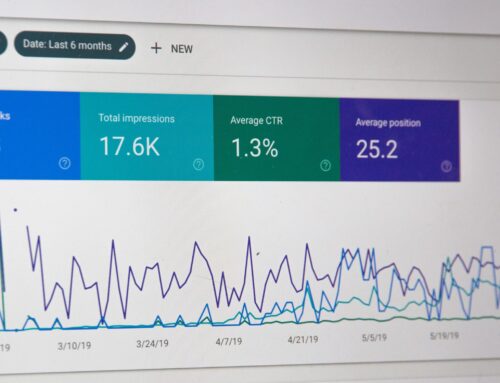 How great would it be if you could fill your organization’s open positions with qualified candidates? Better yet, what if you didn’t need to hire a recruiter to find them, or put them through onboarding? How about lower turnover and higher retention? This may sound like a dream come true, but it’s possible. It just takes a strategic commitment to Learning and Development (L&D) and retention by promoting from within.
How great would it be if you could fill your organization’s open positions with qualified candidates? Better yet, what if you didn’t need to hire a recruiter to find them, or put them through onboarding? How about lower turnover and higher retention? This may sound like a dream come true, but it’s possible. It just takes a strategic commitment to Learning and Development (L&D) and retention by promoting from within.
Retention and Promotion Benefit Everyone
If your organization doesn’t need to hire or train new employees often, that saves time and money. The longer people stay with your organization the fewer “refills” you’ll need. And high turnover rates can hurt morale, especially if the vacancies stay open for a long time. Retention also helps keep institutional memory intact. For example, a longtime employee is likely to remember earlier projects and lessons learned. They can suggest process improvements, avoid known problems, and more. If they leave, that knowledge and experience go with them.
Likewise, there are several advantages to promoting from within. You don’t need to worry about educating candidates on company standards or culture, because they already know them. Additionally, if you’ve been actively tracking your learners’ accomplishments and competencies you’ll already know what they can do. So, people are more likely to end up in roles that are a good fit for their skill sets.
Learners take notice when their employers offer opportunities for growth and career advancement. Organizations that make a point of developing their existing talent and promoting from within, such as Valvoline, tend to be sought after workplaces. Not only that, but they often have smoother succession planning. So, it’s much easier to fill the gaps when someone does leave or move into a new position.
It’s not uncommon for organizations to have their own online “university” or classroom courses for delivering training. But there are other options for development too, such as:
- Coaching and mentoring programs
- Sponsorships for conference and workshop attendance
- Tuition reimbursement
- Job shadowing
- Funding for professional association membership
- Industry-related book clubs
- Stretch assignments
- Personalized career planning
 Retention and Promotion Example – No Focus on L&D and Talent Development
Retention and Promotion Example – No Focus on L&D and Talent Development
Martin is a sales representative who’s been at the same company for two years. He’s good at his job, but he wants to take on more responsibility and eventually become director of sales. So, what’s he going to do?
Martin completes his assigned tasks on time and his sales numbers consistently meet his goals. He has already taken all the sales courses in the LMS. He’d like to attend some development workshops but doesn’t have the time or the money. Martin doesn’t know what else he can do to make himself a better candidate for promotion. He asks his supervisor for feedback, and she tells him that he’s doing fine. Maybe something will open up if he’s patient.
Nothing changes during the next six months. Then the company hires someone from outside as the new director of sales. Discouraged, Martin decides that he might have better luck elsewhere. He quietly finds another sales job before handing in his two weeks’ notice.
Retention and Promotion Example – Focus on L&D and Talent Development
Kelly is a sales representative who’s been at the same company for two years. She’s good at her job, but she wants to take on more responsibility and eventually become director of sales. So, what’s she going to do?
Kelly completes her assigned tasks on time and her sales numbers consistently meet her goals. She has already taken all the sales courses in the LMS. She still has her yearly development stipend and hours available and considers attending a workshop. Kelly wants to make herself a better candidate for promotion, so she asks her supervisor for feedback. Her supervisor reviews her accomplishments using the organization’s competency-based LMS. He sees that while her sales skills are strong, she doesn’t have much experience working on or leading teams. Those are identified as core skills for the director of sales position. He recommends that she choose a teamwork or leadership workshop and start taking courses in the LMS that focus on those skills.
During the next six months, Kelly goes to a workshop and continues studying the needed skills. She has a scheduled follow up meeting with her supervisor and they review her progress. Her knowledge base is good, but she needs practical application. So, Kelly is given several “stretch assignments” to start testing her new skills. She hasn’t quite reached director of sales yet, but she does get promoted to sales lead. She has a clear, measurable path to her goal and the organization can track her progress and keep her in mind for further career advancement.
Retention, Promotion, and Personalization
Do you see the difference? Basic job training isn’t personalized and doesn’t always take a broader look at the skills someone might need to reach their goals. It rarely provides clear steps for learners to follow to advance their careers. L&D should provide options for people to deepen their knowledge and try new things that still benefit the organization.
If Martin leaves that doesn’t do his organization any good. If Kelly focuses on becoming a leader both she and her organization benefit. It’s a win-win situation. While some organizations just see training as “a necessary cost,” it can provide a wealth of benefits including increased retention and promotion opportunities.




